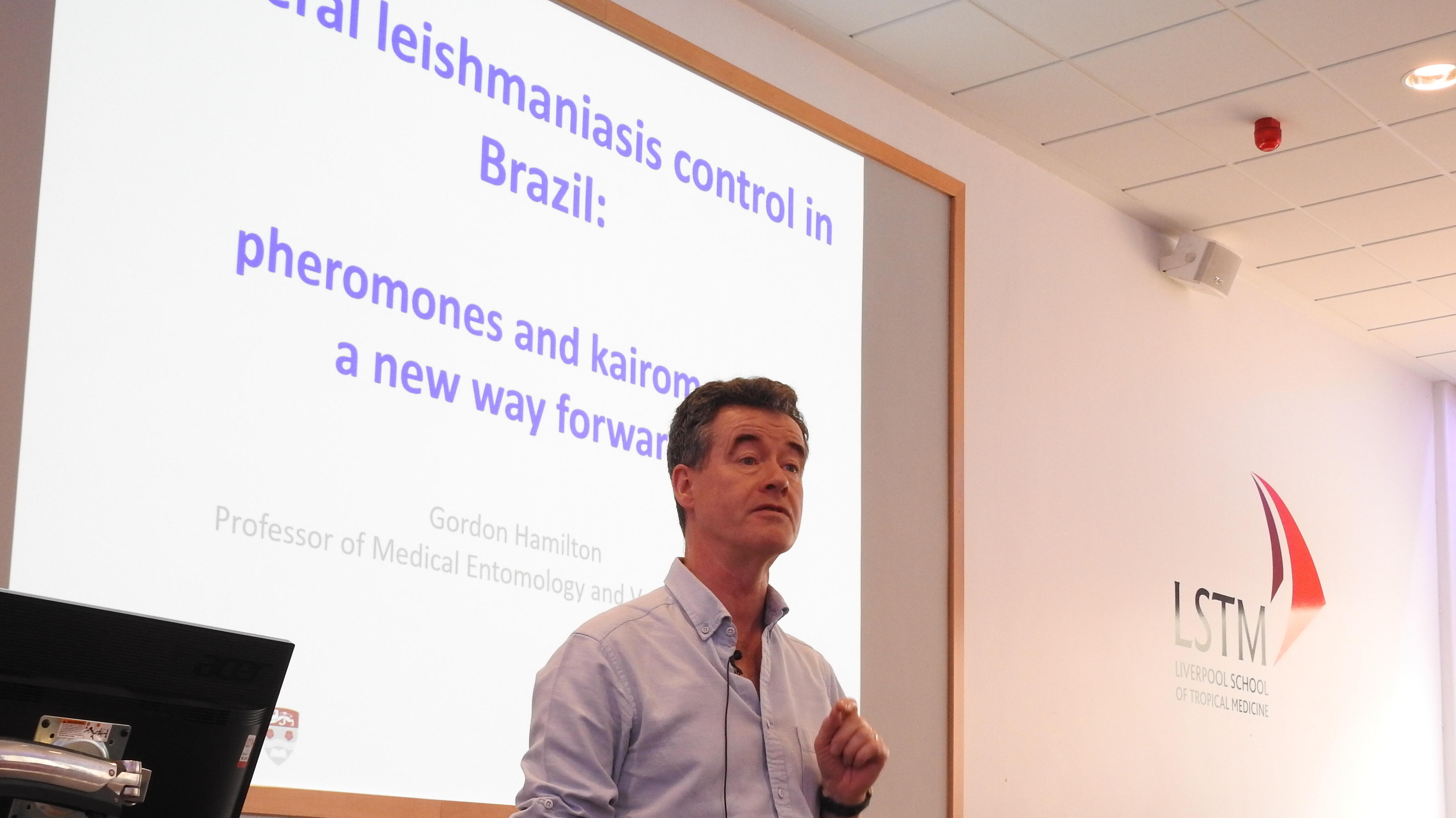
Dr Gordon Hamilton, Professor of Medical Entomology and Vector Control at Lancaster University.
Visceral leishmaniasis (VL) is predominantly a human and canine disease caused by infection with a Protist parasite (Leishmania infantum) transmitted by the bite of infected female sand flies (Lutzomyia longipalpis). Dogs act as the reservoir of infection for the human population. If untreated VL is fatal in humans, in dogs it is always fatal. Brazil has ca. 6000 VL attributed deaths per year but the impact because of morbidity is significant and growing, partially because of the spread of the vector into new areas and partially because of the failure of existing control methods. The Brazilian MoH uses a 3-strand approach to VL control; 1. Vector control, 2. Reservoir control and 3. Therapeutic drugs. This seminar will describe work that we have been doing over the past 10 years on vector control including the results of a randomised control trial in Brazil to reduce leishmania transmission (pheromones) and some relatively recent work related to improving the outcomes of reservoir control (kairomones).
Professor Hamilton gained his BSc and MSc in Zoology and Chemistry at Cardiff University, his PhD in Biomedical Sciences at Old Dominion University and his Postdoc at Liverpool School of Tropical Medicine and Rothamsted Experimental Station. He was Lecturer, Senior Lecturer, Reader and Personal Chair at Centre for Applied Entomology and Parasitology, Keele University. He is currently Professor of Medical Entomology and Vector Control at Lancaster University.